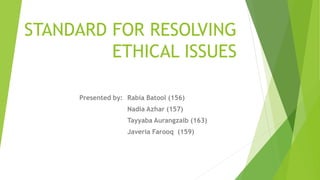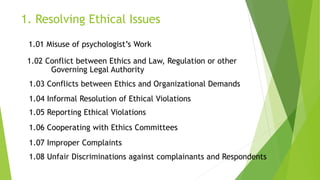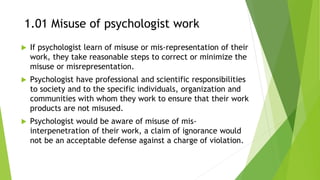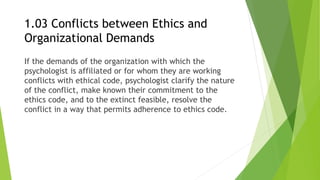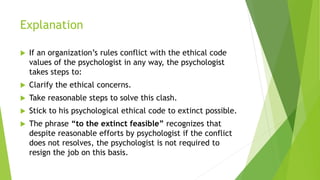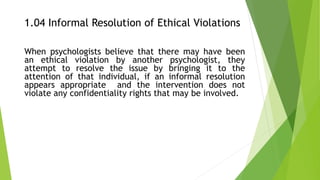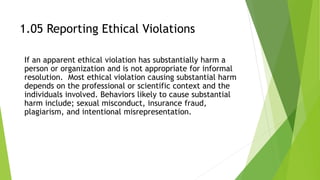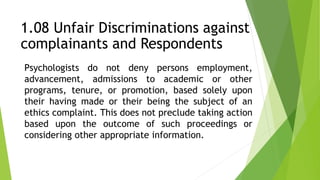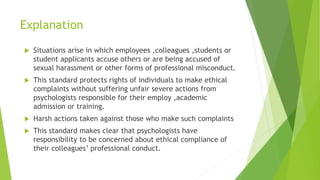The document outlines standards for resolving various ethical issues faced by psychologists, including misuse of their work, conflicts with legal regulations, and organizational demands. It emphasizes the necessity of cooperative actions and informal resolutions, while dealing with allegations and ensuring fair treatment of complainants and respondents. The text also stresses the importance of adherence to ethical codes and reporting significant violations, along with the responsibility to minimize unconscious bias and discrimination in the process.
